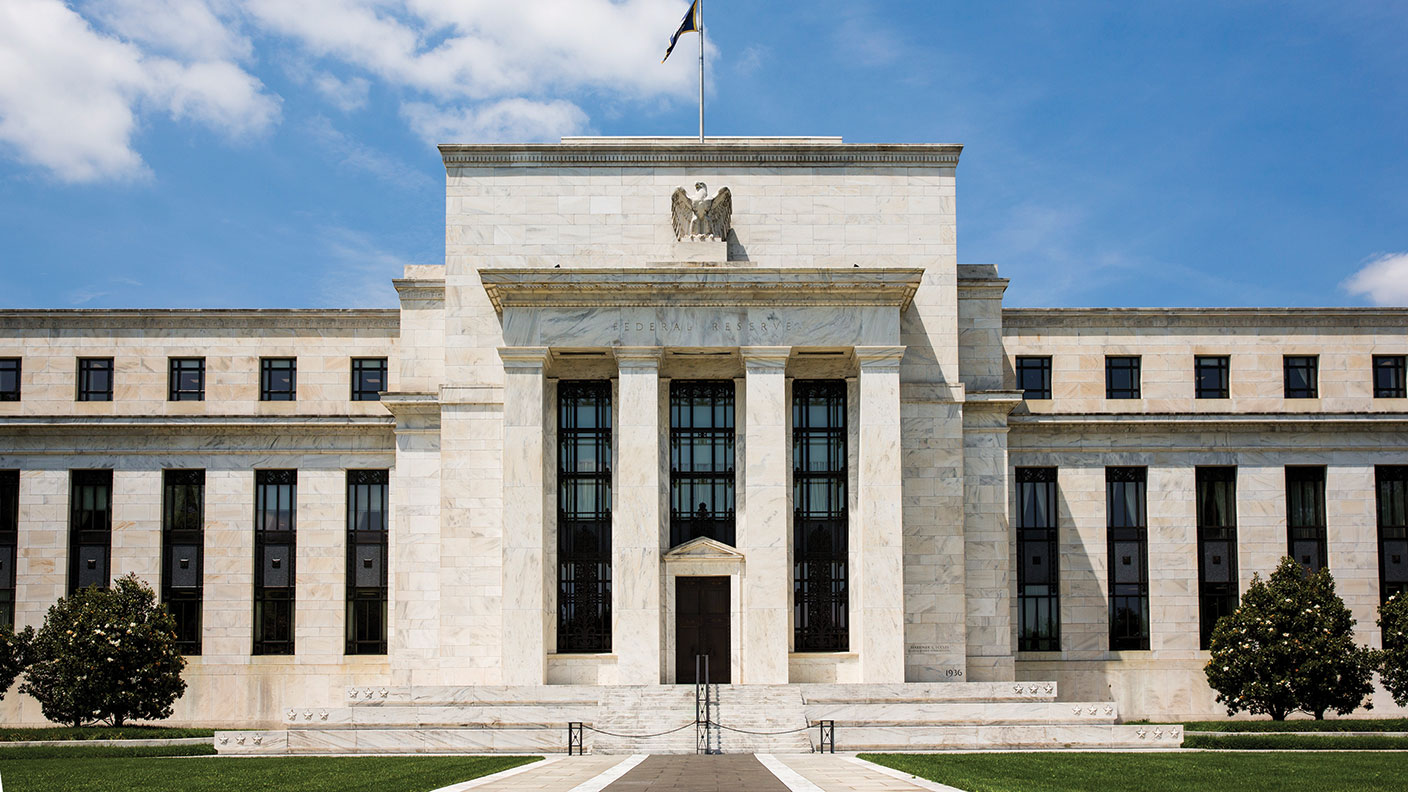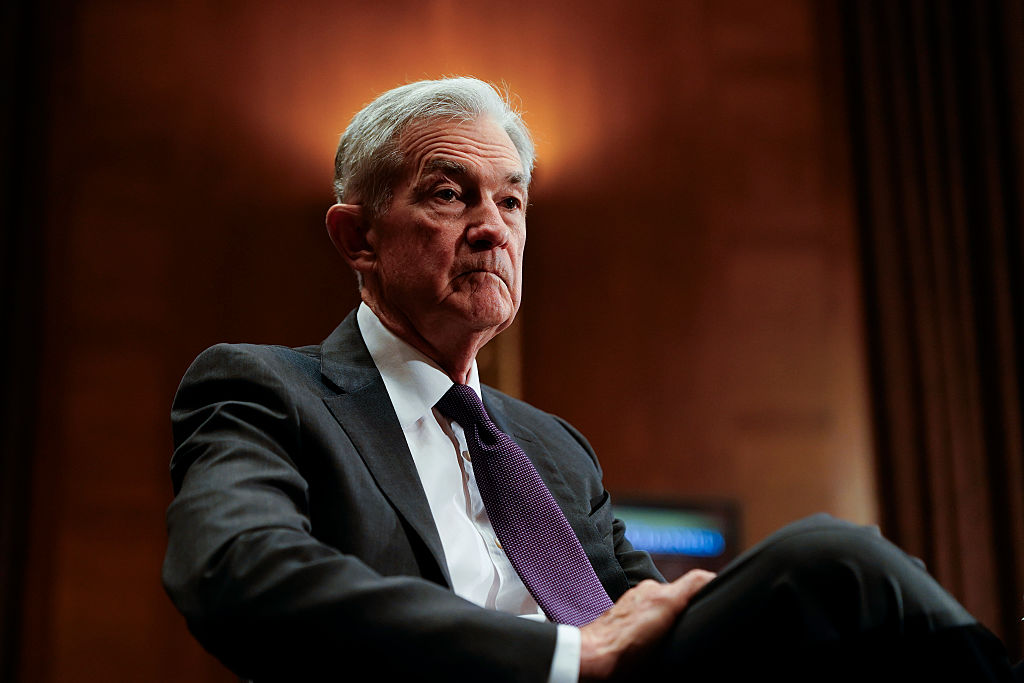Federal Reserve cuts US interest rates for the first time in more than four years
Policymakers at the US central bank also suggested rates would be cut further before the year is out


Get the latest financial news, insights and expert analysis from our award-winning MoneyWeek team, to help you understand what really matters when it comes to your finances.
You are now subscribed
Your newsletter sign-up was successful
Want to add more newsletters?

Twice daily
MoneyWeek
Get the latest financial news, insights and expert analysis from our award-winning MoneyWeek team, to help you understand what really matters when it comes to your finances.

Four times a week
Look After My Bills
Sign up to our free money-saving newsletter, filled with the latest news and expert advice to help you find the best tips and deals for managing your bills. Start saving today!
The US Federal Reserve has cut interest rates for the first time in more than four years, and signalled that more reductions will follow.
On Wednesday evening the Fed announced a cut of 50 basis points, leaving the federal funds rate at a range of 4.75 to 5%. After the announcement, policymakers at the central bank suggested rates would be cut by an additional 50 basis points before the year is out.
“The US economy is in a good place and our decision today is designed to keep it there,” Fed chair Jay Powell said at a news conference yesterday.
MoneyWeek
Subscribe to MoneyWeek today and get your first six magazine issues absolutely FREE

Sign up to Money Morning
Don't miss the latest investment and personal finances news, market analysis, plus money-saving tips with our free twice-daily newsletter
Don't miss the latest investment and personal finances news, market analysis, plus money-saving tips with our free twice-daily newsletter
The reduction by the Fed follows cuts by other central banks, including those in Europe and Canada.
The cut came amid fears that the world's largest economy is flagging, with the unemployment rate in the US climbing to 4.2% from 3.7% at the start of the year.
Isaac Stell, investment manager at Wealth Club, says: “The Federal Reserve has entered the race at pace, opting for the jumbo option, cutting headline interest rates by 0.50%.
"Despite there being no significant economic woes on the radar, policy makers have decided to get ahead of the curve as recent payroll reports have shown a gradual slowdown in the jobs market."
US stocks rallied immediately after the announcement and the FTSE 100 opened higher in London on Thursday morning as investors cheered Wednesday night’s cut.
What does the US interest rate cut mean for UK interest rates?
On Thursday the Bank of England announced its decision to keep interest rates on hold at 5% for at least the next two months. The decision is a blow for households and businesses struggling with high borrowing costs, but one that was widely expected.
The decision from the Monetary Policy Committee (MPC) was clear-cut, with members voting to hold rates by an 8-1 majority. The only committee member who voted to reduce the base rate to 4.75% was Swati Dhingra, who has repeatedly advocated for a more dovish stance from the UK central bank.
The decision to hold comes after interest rates were cut from their 16-year high of 5.25% on 1 August.
In its August policy summary, the MPC said: “Monetary policy will need to continue to remain restrictive for sufficiently long until the risks to inflation returning sustainably to the 2% target in the medium term have dissipated further.”
Since then, inflation has inched up to 2.2%, and services inflation and wage growth remain elevated at 5.6% and 5.1% respectively.
The next MPC meeting will not take place until November, at which point a rate cut looks more likely. Markets have been pricing in one to two more cuts before the end of the year, with November looking like the most likely month.
And what does the US rate cut mean for markets?
Lower interest rates have the tendency to increase company share prices for a couple of reasons.
In the first instance, it allows firms to borrow cheaper debt, which it can then use to expand operations and hopefully make the business more profitable.
Secondly, in an environment of lower interest rates, putting your money into savings accounts becomes less attractive and so many investors instead move it into higher returning assets, such as stocks.
Gabriel McKeown, head of macroeconomics at Sad Rabbit Investments, says: "With the Fed making a clear statement that it's prioritising growth over inflation concerns, this could be the start of a new bull market in risk assets."
Get the latest financial news, insights and expert analysis from our award-winning MoneyWeek team, to help you understand what really matters when it comes to your finances.
Chris is a freelance journalist, and was previously an editor and correspondent at the Financial Times as well as the business and money editor at The i Newspaper. He is also the author of the Virgin Money Maker, the personal finance guide published by Virgin Books, and has written for the BBC, The Wall Street Journal, The Independent, South China Morning Post, TimeOut, Barron's and The Guardian. He is a graduate in Economics.
-
 Should you buy an active ETF?
Should you buy an active ETF?ETFs are often mischaracterised as passive products, but they can be a convenient way to add active management to your portfolio
-
 Power up your pension before 5 April – easy ways to save before the tax year end
Power up your pension before 5 April – easy ways to save before the tax year endWith the end of the tax year looming, pension savers currently have a window to review and maximise what’s going into their retirement funds – we look at how
-
 How a dovish Federal Reserve could affect you
How a dovish Federal Reserve could affect youTrump’s pick for the US Federal Reserve is not so much of a yes-man as his rival, but interest rates will still come down quickly, says Cris Sholto Heaton
-
 New Federal Reserve chair Kevin Warsh has his work cut out
New Federal Reserve chair Kevin Warsh has his work cut outOpinion Kevin Warsh must make it clear that he, not Trump, is in charge at the Fed. If he doesn't, the US dollar and Treasury bills sell-off will start all over again
-
 'Investors should brace for Trump’s great inflation'
'Investors should brace for Trump’s great inflation'Opinion Donald Trump's actions against Federal Reserve chair Jerome Powell will likely stoke rising prices. Investors should prepare for the worst, says Matthew Lynn
-
 'Governments are launching an assault on the independence of central banks'
'Governments are launching an assault on the independence of central banks'Opinion Say goodbye to the era of central bank orthodoxy and hello to the new era of central bank dependency, says Jeremy McKeown
-
 Will Donald Trump sack Jerome Powell, the Federal Reserve chief?
Will Donald Trump sack Jerome Powell, the Federal Reserve chief?It seems clear that Trump would like to sack Jerome Powell if he could only find a constitutional cause. Why, and what would it mean for financial markets?
-
 Can Donald Trump fire Jay Powell – and what do his threats mean for investors?
Can Donald Trump fire Jay Powell – and what do his threats mean for investors?Donald Trump has been vocal in his criticism of Jerome "Jay" Powell, chairman of the Federal Reserve. What do his threats to fire him mean for markets and investors?
-
 Do we need central banks, or is it time to privatise money?
Do we need central banks, or is it time to privatise money?Analysis Free banking is one alternative to central banks, but would switching to a radical new system be worth the risk?
-
 Will turmoil in the Middle East trigger inflation?
Will turmoil in the Middle East trigger inflation?The risk of an escalating Middle East crisis continues to rise. Markets appear to be dismissing the prospect. Here's how investors can protect themselves.
